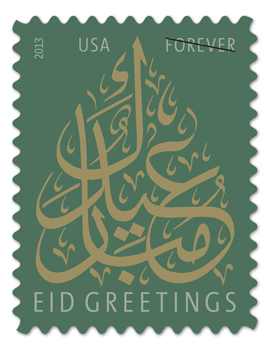
12 April 2010: Sheikh Yusuf Al Qaradawi meets Nelson Mandela, and hailed the South African leader as the “hero of Africa”.
JOHANNESBURG – As millions worldwide bid farewell to Nelson Mandela, many Muslim eyes were turned back to history, reviving memories of a long history of interaction between Muslims and the iconic leader across the past decades. As the Nelson Mandela himself once said, ““In the face of European colonialism, Islamic communities took their place along the whole spectrum of resistance politics, including the struggle against apartheid.” Nelson Mandela’s friendship with Muslims and his knowledge of Islam goes back many years before almost to the time of his arrival in Johannesburg when he met many of his comrades the likes of Molvi Cachalia and Molvi Saloojee and many others. ”
“In spite of their small numbers in relation to the total population, Muslims have made a profound contribution to the religious, social, economic, cultural and political development of South Africa. During the darkest days of apartheid, Muslims played a role in protest politics with an impact far greater than their numbers would suggest. Some Muslims like Imam Abdullah Haroon, Ahmed Timol were killed by the apartheid security police. Ahmed Kathrada spent 26 years together with Nelson Mandela in Robben Island. Others like Ebrahim Ebrahim served terms of 20 years. Muslim Theologians like Moulana Cachalia, spurred on by their religious convictions to take a strong stand against Racism and injustice were in the forefront of the ANC delegation to the Non‐Aligned Movement conference in Bandung, Indonesia, that first brought the injustice of the apartheid system onto the world stage. Many Muslims were forced into exile. It was therefore not surprising that after the first free elections in 1994, there were 17 Muslim MPS in the first parliament of a new and free South Africa. Together with this many Muslims were also in the cabinet of Nelson Mandela, including the Minister of Justice, Abdullah Omar, a prominent member of the Cape Muslim community. The first chief Justice in the new dispensation, Justice Ismail Muhammed was also a prominent member of the Pretoria Muslim community. This trend has continued with many Muslims still playing an active role in the decision making of the Country.” (Source: Muslims in South Africa by Maulana Bham}
Ahmed Kathrada, South African Muslim Comrade of Nelson Mandela in the Struggle Against Apartheid
Nelson Mandela’s conversation with Ahmed Kathrada
Walter Sisulu and Ahmed Kathrada, leaders in the Struggle against Apartheid about their arrest
Nelson Mandela never forgot how South African Muslims stood by his side during the long and dangerous struggle against apartheid. Here are some key events that show a collection of milestones highlighting Mandela’s historic and warm interactions with Muslims since 1990, gathered by Cii Radio on Friday, December 6.
17 March 1992: Nelson Mandela pays a visit to the predominantly Muslim area of Bo Kaap in Cape Town – 17 March 1992
Mandela paid a visit to the predominantly Muslim area of Bo Kaap in Cape Town in 1992. He was met by, amongst others, the late author and historian Achmat Davids and the late Sheikh Nazeem Mohammed, then President of the Muslim Judicial Council.
24 March 1993: `Eid Message to the Muslim Community from ANC President Nelson Rolihlahla Mandela
In his message to Muslims in 1993, Mandela said, “I have always been particularly attached to the Muslim greeting – I thus greet you in the name of Peace.”
He has also praised the Muslim community, praying that their “sacrifice and discipline during the fast will stand this nation in good stead.”
He concluded his message saying, “On behalf of the National Executive Committee of the ANC and its entire membership I wish you all `Eid Mubarak and may you have a joyous day.”
9 May 1994: Nelson Mandela’s Address to the people of Cape Town, Grand Parade, on the Occasion of his inauguration as State President, 9 May 1994
In his inauguration speech, Mandela gave a remarkable speech which was concluded by the statement, “We can count amongst them Africans, Coloureds, Whites, Indians, Muslims, Christians, Hindus, Jews – all of them united by a common vision of a better life for the people of this country.”
1994: Nelson Mandela received Sheikh Yusuf Peace Award from the Muslim Women’s Federation, 10 September
Message by Mr Nelson Mandela to Sheikh Gabier and the Muslim community on the birthday celebrations of Prophet Mohammed(Meelad un Nabi)
“Today is the birthday of the Prophet Mohammed and our thoughts will be with you and the entire Muslim community, wherever in the world they may be, as you all gather at the various mosques to pay homage to a unique religious leader, whose influence continues to spread to practically every part of the world and to every nation,” Mandela said in his message.
October 1994 – Prominent Scholar Ahmed Deedat has an interesting encounter with Mandela (as narrated by Goolam Vahed in his book, “Ahmed Deedat: The Man and His Mission” p. 19)
“In October 1994, Ahmed Deedat received a call from Saudi Arabia at his Verulam home. When told that it was Nelson Mandela, the new South African president, Deedat recalled: ‘At first I thought it was a prank call, and did not take the matter seriously. However, when I realized that it was indeed the State President, I nearly fell off my seat.’
Mandela, who was on an official visit to Saudi Arabia, told Deedat that wherever he went people asked whether he knew Mr Deedat. He suggested that they meet on 6 November 1994 during Mandela’s visit to Durban. The meeting did not materialise because Deedat had to travel abroad, but he told reporters that he was greatly honoured and humbled at receiving the almost unbelievable telephone call from the President.”
Later when Ahmed Deedat fell into his illness, the following statement was made by the ambassador of South Africa:
“Mr Mandela is concerned about any South African living in any part of the world but the case of Deedat is special as he is highly respected, not only in South Africa, but in the world, for his dedication and hard work in the preaching of Islam during the past fifty years” (Ahmed Deedat: The Man and His Mission, by Goolam Vahed, p. 18)
[Please click here to read about the relationship between Mandela and Muslims in South Africa]



















July 18th, 2018 → 10:01 am
[…] Nelson Mandela’s Journey with Islam and Muslims in the Struggle Against Apartheid in South&nbs… […]